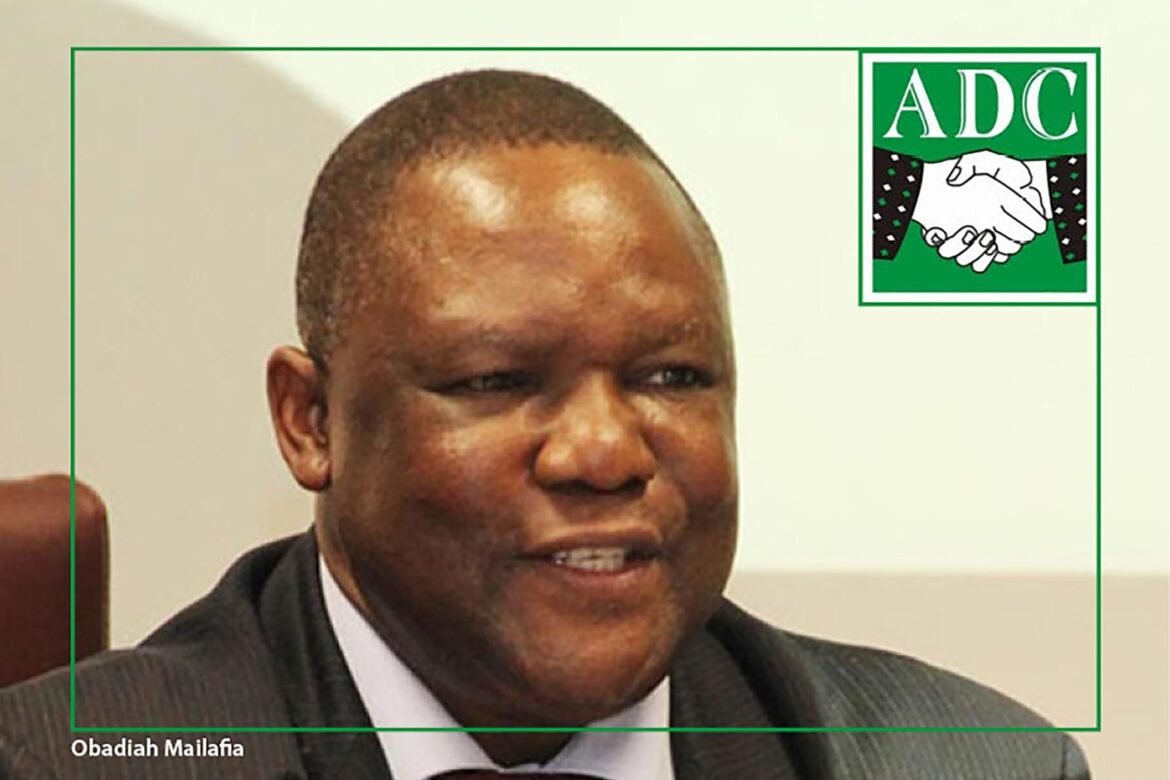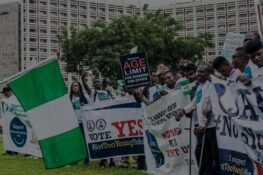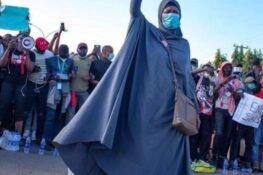It has happened countless times, in a market maybe in Alaba, Lagos, in Jos or even Kaduna.
A dispute between two individuals suddenly escalates into ethnic clashes, overnight rioting and after two or three days, leaves half of the city burnt down.
All it takes is for one of the disputing parties to paint what is a very personal misunderstanding in religious and tribal colours, and with the right words, incite his fellow tribesmen to take up his cause.
The hundreds of tribes and languages that make up Nigeria ars not what make incidents of sudden and spontaneous violence possible.
What makes them possible is the ability to propagate hate unhindered.
At least going by the many conflicts that still exist in Nigeria, when religion cannot be deployed as a weapon of choice, then the question of settlers and indigenes, is the next choice weapon.
And in any community dispute driven by the contest for land or resources, the tendency to use tribe and religion to incite hate becomes increasingly high and also very explosive.
Obadiah Mailafia, a one-time deputy governor of the Central Bank of Nigeria (CBN) and a presidential candidate in the last general elections, was without doubt looking to draw attention to the violence and loss of lives and properties that is now overwhelming southern Kaduna.
Shaping the narrative and how the crisis in southern Kaduna is framed is crucial to winning over the wider public across Nigeria at the very least, and at most implant hate or incite to violence.
To achieve this, the main points Mailafia made last week in his interview with Nigeria Info, a radio station in Abuja; are that the banditry and Boko Haram insurgency in some parts of the country are one and the same.
At least going by the many conflicts that still exist in Nigeria, when religion cannot be deployed as a weapon of choice, then the question of settlers and indigenes, is the next choice weapon
The insurgents, he said, were already infiltrating rainforests in southern Nigeria. They are planning to go house to house to kill prominent Nigerians (some public commenters have modified his quote to the killing of prominent Nigerians in southern Nigeria).
Also his claim that the bandits want to instigate a civil war, is not necessarily the most outlandish.
Certainly the most news worthy of his claims was that the commander of Boko Haram is a sitting northern governor.
To end the conflict and banditry in Kaduna, drawing public attention to the killings could not be more important.
Everything Mailafia has said and done has only succeeded in drawing attention to himself, drowning out stories of the actual killings.
And for those working day and night to bring an end to the conflicts, Mailafia just made their job a lot more difficult.
Words do matter. It isn’t just Nigeria, but all over the world, the idea of anything like hate speech was a few decades ago non-existent.
Yet, words are being used every day expressing hate or encouraging violence towards an individual or group.
For every year that Donald Trump has been President of the United States of America, there has been an increase in hate crimes against black people, other minorities and immigrants.
He has described Mexicans entering the United States as criminal and rapists, bringing drugs and their problems.
But some, he assumed to be good people. Consequently, anytime a crime is committed by an immigrant, it fuels attacks, hate crimes on innocent individuals who also happen to be immigrants. And some of the crimes are due to the things the President says.
There will be always someone out there that feels the need to act on the hate in his heart, which has further been inflamed by a president he looks up to.
For the few that believe white people are superior to other races and see an ally in the President, he has given them a license to hate.
Bias and prejudice are not easy to remove from the heart and there are thousands out there who genuinely believe Mailafia’s every word and think he was threatened by the SSS to take them back
A video clip of the Nigeria Info interview where Mailafia made all these claims went viral after it was posted by the radio station.
Mailafia said he had learnt of the unnamed northern governor being a Boko Haram commander from repentant terrorists, who he described as the highest possible authority.
That so many would want to share the video shows what people are willing to believe, the conspiracy theories people will embrace to feed their bias and also the extent of the divisions in the society.
Bias and prejudice are not easy to remove from the heart and there are thousands out there who genuinely believe Mailafia’s every word and think he was threatened by the SSS to take them back.
Mailafia was questioned by the SSS some two days after the interview aired on 99.3 FM. He emerged from the questioning vowing to stand his ground.
The SSS, from a statement released after the grandstanding appeared shocked.
Mailafia, they said did nothing but apologize profusely for the allegation he made.
The same allegations, he said no one should joke with.
One day later, after the questioning, he would apologise publicly saying he got the information from Fulani traders in market. He had effectively turned the whole episode into a joke; only it was an expensive joke.
No one can argue that the SSS have overreacted on many occasions and particularly when they detained publisher of Sahara Reporters, Omoyele Sowore, last year for planning protests against bad governance.
Dissent is an integral part of the democratic process. But seeking a change of government through peaceful protest is not exactly the same as inciting hate based on religion and ethnicity, which is what we see in Mailafia’s case.
In a country like Nigeria, social disorder is always just one speech away.
And as much as everybody has a role to play, with agitators and dissenters demanding for a more equitable and just society, without vigilance from the media, civil society and even the SSS, there may be no society at all.
Some countries have learnt that the hard way.
Still, Mailafia could not have picked a worse time to test the limits of the freedom of speech in Nigeria.
Just when the media, civil society organisation are up in arms against a recent change in the broadcasting code of the National Broadcasting Commission, which prescribes a N5m penalty for broadcasters engaging in hate speech.
As far as the opposition, civil society groups are concerned, laws under consideration relating to hate speech are not only a threat to the freedom of expression, they are extreme. Anyone found guilty of inciting hate could be sentenced to death.
Defining hate speech and enacting laws against it, particularly on social media have been controversial enough.
Getting the government and lawmakers to sit down and moderate these proposed laws has been just as challenging.
Mailafia, who sees himself as a good candidate to be president, may have thrown a spanner in the works.








